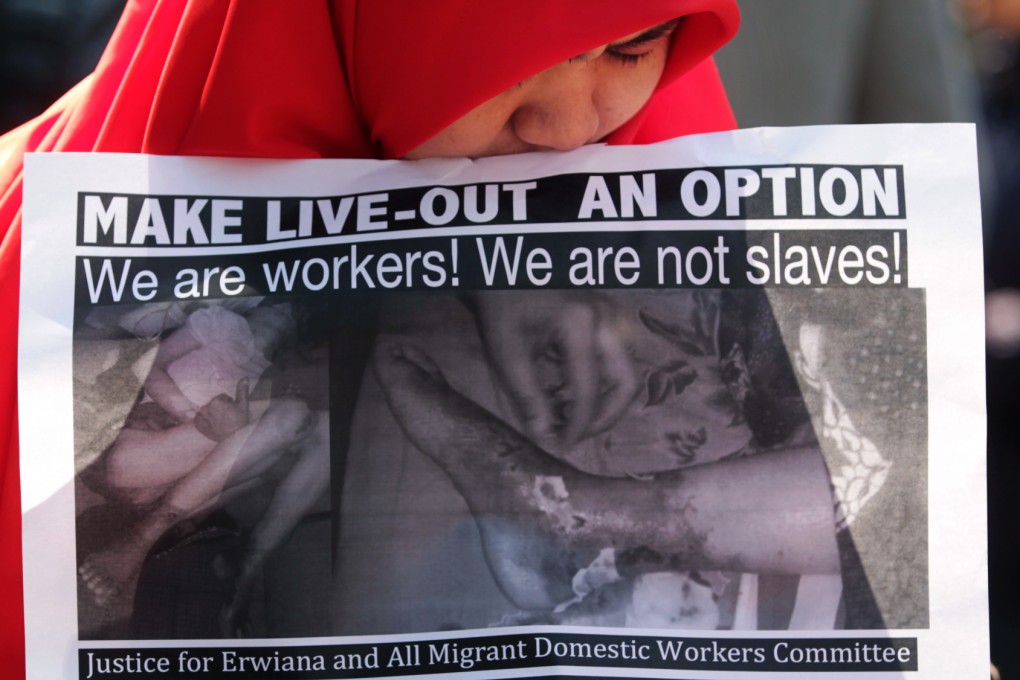Would-be helpers from Bangladesh scared off by abuse fears
Bangladeshi consul confirms just 270 maids from his country have taken up jobs in city, while a fifth of those have already gone home

Just a fraction of the 5,000 Bangladeshi maids who had been expected to take jobs in Hong Kong under a deal struck last year have arrived - with many put off by reports of mistreatment and abuse.
One in five of the 270 Bangladeshis who had taken jobs in the city since May were back home already, the country's top diplomat in Hong Kong revealed.
And such is the concern about abuse that Dhaka last year sent inspectors to make checks.
The development again puts the spotlight on working conditions for Hong Kong maids in the wake of a recent abuse case.
It also casts doubt on the ability of Bangladesh to fill the hole left by a shortage of Filipino and Indonesian domestic helpers, who account for 98 per cent of Hong Kong's maids.
Last week an employer was arrested accused of hitting and pulling the hair of her Bangladeshi helper. Also last week, the former employer of Indonesian Erwiana Sulistyaningsih appeared in court charged with abusing her and two other maids.
When the two governments agreed in April to allow Bangladeshi helpers in Hong Kong, it was hailed as a way to help the impoverished South Asian country and fulfil the needs of Hong Kong families.